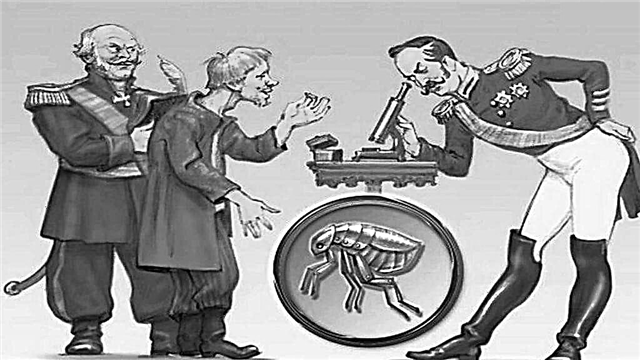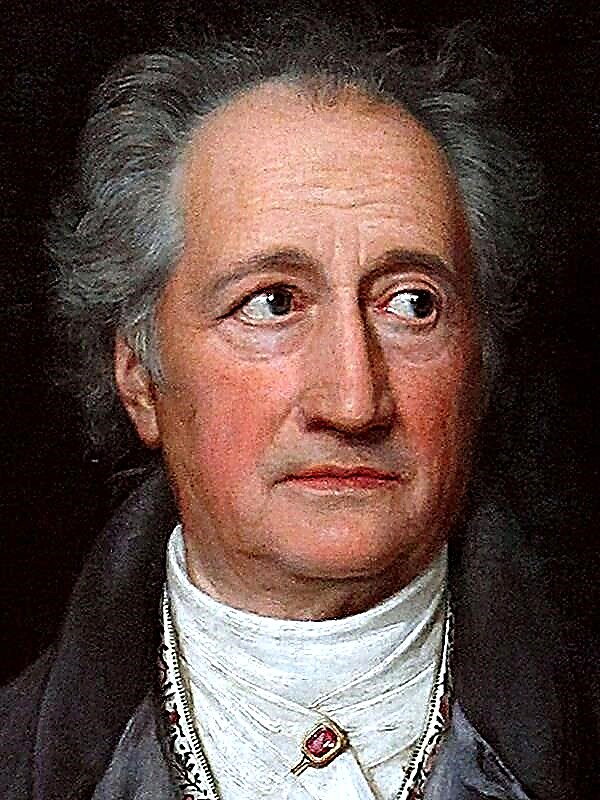The action takes place in the first half of the XVIII century. in the German Duchy of Württemberg. Isaac Simon Aandauer, the court banker of the Duke of Eberhard-Ludwig and his favorite Countess von Würben, a rich and very influential man, has long been eyeing Joseph Süss Oppenheimer, who has worked as a financier in various German courts and has earned a reputation as an intelligent person. Landauer is impressed by Suess's business acumen, confident assertiveness and enterprise, even if somewhat of an adventurous one. However, the old man does not like the emphasized dandy of his young colleague, his claim to aristocracy, a passion for ostentatious luxury. Suess is from a new generation of businessmen, and it seems ridiculous to Landauer to adhere to old Jewish habits, his unpresentable appearance - these eternal Lapserdak, yermolka, paisas. What money is needed for, if you do not pay them respects, luxury, houses, rich outfits, horses, women. And the old banker is triumphant when he enters in this form the office of any sovereign and the emperor himself, who need his advice and services. The young colleague is not aware of the subtlest pleasure of hiding power, possessing it and not putting it on public display. It was Landauer who introduced Süss to Prince Karl-Alexander Württemberg, the ruler of Serbia and the imperial field marshal, but now he is perplexed, which is why the prudent Süss usually takes charge of his financial affairs, losing time and money, because the prince is a goloshtank, and indeed politically - full zero. But his inner instinct tells Suess that he needs to bet on this particular figure; he has an inexplicable conviction that the business bodes well.
Eberhard-Ludwig finally decides to resign Countess von Würten, their relationship lasted about thirty years and became a definite fact of German and European politics. The countess all these years unceremoniously interfered in the affairs of government and was distinguished by excessive greed, which earned him universal hatred. The courtiers and members of parliament, ministers of various European courts, the Prussian king himself exhorted the duke to break up with her, reconcile with Johannes Elizabeth, and give the country and himself a second heir. But even though the disgraced countess is raging, her future is completely insured - thanks to the efforts of Landauer, her finances are in better condition than any sovereign prince.
Karl-Alexander treats Suess in a friendly manner, but he happens to be rudely making fun of him. A great impression on the Prince is a meeting with Uncle Suess, Rabbi Gabriel, a Kabbalist, a possessor. He predicts that Karl-Alexander will become the owner of the princely crown, but the prophecy seems incredible, because the cousin and his eldest son are alive.
Rabbi Gabrielle brings to Württemberg the daughter of Suess, fourteen-year-old Noemi, and settles with her in a secluded little house in Girsau. There were many women on Suess's life path, but only one left a painful mark on his soul. In that Dutch town, he recognized the real feeling, but his beloved soon died giving him a daughter.
There is a marriage of Karl-Alexander with Princess Maria-Augusta, who shows favor to a pleasant and gallant court Jew. - Karl-Alexander passes to the Catholic faith, which causes shock in Württemberg - the bastion of Protestantism. And soon the prediction of Rabbi Gabriel comes true, he becomes the ruler of the duchy. He regards inherited power as a source of satisfaction for his own selfish thoughts. Suess, when necessary, knows how to show cringing and obsequiousness, he is striking in his tongue, different sharpness of mind. The financial adviser of the duke, his first confidant, he skillfully inflates the ambition of his master, indulges his whims and lusts. He readily concedes to the voluptuous duke the daughter of the Girsau prelate Weissense Magdalen-Sibill, although he knows that the girl is completely in love with him. And in vain she so tragically perceives what happened - from now on, a wide road opens before the silly provincial. Suess collects funds for the maintenance of the court, the army, princely ventures and entertainment, and holds in his hands the threads of public and private interests. All new taxes are being introduced, shameless trade in posts and titles is underway, the country is suffocating from endless requisitions and duties.
Suss is making a dazzling career, and yet his father was a comedian, his mother a singer, but his grandfather is a pious, respected cantor. Now Suess, by all means, wants to get the nobility. The fullness of power concentrated in his hands no longer satisfies him; he wants to officially take the place of the first minister. Of course, if he were baptized, everything would be settled in one day. But for him, the question of honor is to receive the highest post in the duchy, remaining a Jew. In addition, he intends to marry a Portuguese lady, a very wealthy widow, who set the condition for him to receive the nobility. But there are obstacles to this.
The climb to wealth and power is accompanied by hatred and aversion. “Under the former duke, the country was ruled by a whore,” they say, “and under the present, the Jew rules.” Anger, ignorance, superstition create the basis for the outbreak of persecution of Jews. The reason is the trial of Ezekiel Zeligman, falsely accused of infanticide. Isaac Landauer, and then the deputation of the Jewish community, asked Suess to help so that innocent blood would not be shed. Suess prefers not to interfere, to maintain strict neutrality, which causes their disapproval. Ungrateful, Suess thinks of fellow believers, because he everywhere and everywhere sought relief for them, and besides, he already made a sacrifice by not renouncing Jewry. But he really wants to justify himself in the eyes of his daughter, to whom the evil, painful rumors of his father have come, and he begs the duke for assistance. Karl-Alexander asks not to bother him, he is already known as a Jewish henchman for the whole empire, but nevertheless he is released on his orders. Suess boasts about how he will be extolled and praised in the Jewish world, but then he learns from his mother that his father was not at all the comedian Issachar Suess, but Georg-Eberhard von Geidersdorf, the baron and the field marshal. He is a native Christian and nobleman, although he is illegitimate.
At court intrigues are spinning, a plan is being developed to subordinate Württemberg to Catholic influence. Suess's enemies are intensifying, intending to start a criminal case against him on charges of fraud, but there is no evidence. The absurd slander prompted by impotent envy and unbridled spite, Karl-Alexander is indignant. While Suess is away, Weissense, dreaming of besieging a presumptuous Jew, brings the duke to Girsau, promising a pleasant surprise. He shows the house where Suess hides the beautiful daughter from prying eyes. Trying to avoid the duke's voluptuous harassment, Noemi throws herself from the roof and crashes. Her death becomes a terrible blow for Suess, he is plotting a sophisticated revenge for the duke. When he tries to organize an absolutist conspiracy, Suess betrays him, and, unable to survive the collapse of hopes and far-reaching plans, the duke dies of a blow. But Suess does not feel the expected satisfaction, his accounts with the duke, the skillfully erected building of revenge and triumph are all lies and delusions. He offers the leaders of the conspiracy to arrest him in order to avoid persecution and possible reprisal. And now the former associates, more recently respectful and obsequious, zealously fence themselves off, presenting the case in such a way that there was only one criminal and oppressor, the instigator of all the troubles, the cause of all ills, the inspirer of everything evil.
Süss spends almost a year in custody while the investigation into his case drags on. He becomes gray-haired, hunched over, looking like an old rabbi. Transformed by personal grief, he comes to the denial of action, during the time of suffering, he learned the wisdom of contemplation, the importance of moral perfection. An honest and fair lawyer Johann-Daniel Garpregg, despite all the hostility to Suess, reports to the Duke Regent Karl-Rudolf Neuenstadtsky that it was important for the commission of inquiry to condemn not a swindler, but a Jew. Let a Jew be better hanged illegally than legally survive and still haunt the country, the duke said. To the joyful screams and the hooting of the crowds, Suess in an iron cage jerk up to the gallows.












